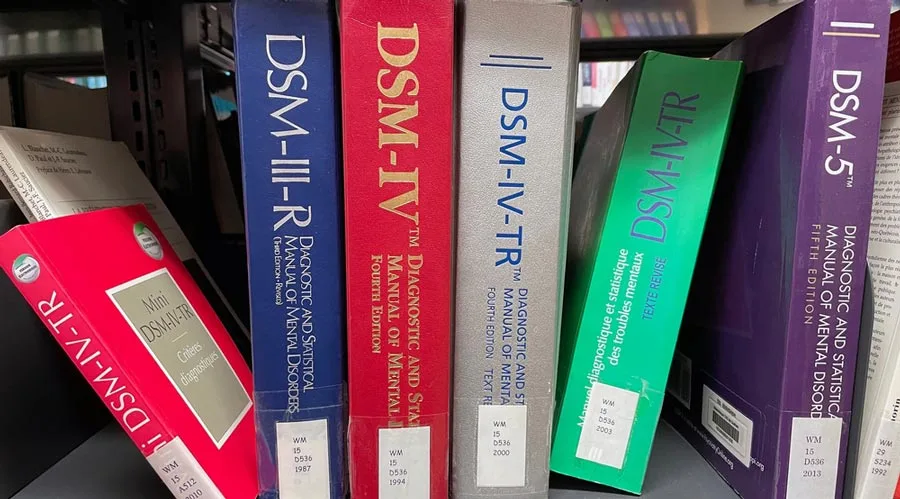A Look at Establishing a Succesful Life in Long Term Sobriety
Addiction is a widespread issue that impacts millions of individuals worldwide across all demographics, ages, and socioeconomic backgrounds. It affects not only those struggling with the disease of addiction but also their families, friends, and communities.
Addiction began to affect my family members and me around the age of 17 and it has taken me about twenty years to finally move past it. But I am just one person out of millions in this country affected by the disease of addiction.
Keep reading to learn more about long term recovery, what it takes, and how to get started on path to sobriety, based on my hard-won experience and some data to back up my words!
Addiction By the Numbers in the US: The Staggering Statistics
When we look at some of the numbers, we can really see how much of a problem substance abuse and addiction is today. According to researchers at the National Survey on Drug Use and Health (NSDUH), 19.7 million American adults (aged 12 and older) battled a serious substance abuse disorder in 2017 alone, with those numbers having surged even more during and following the pandemic.
Drug and alcohol abuse and addiction cost American society more than $740 billion annually in lost workplace productivity, healthcare expenses, and crime-related costs. With so many people struggling with substance abuse and addiction, and so much money going towards it, it is easy to recognize that this is not a problem that is going away anytime soon.
Although addiction is not a disease that can ever be completely cured, it can, however, be put into remission with treatment. Long-term recovery from addiction is something that is not easy to attain, but with the right attitude, focus, and effort, I can tell you first-hand that it is possible.
Get Effective Detox and Rehab Options at Catalina
What is Considered Long Term Recovery?
Long-term recovery from addiction involves sustaining abstinence from the addictive substance or behavior, coupled with significant improvements in physical health, mental well-being, relationships, and overall quality of life.
It’s a holistic treatment and recovery process, that typically includes ongoing support, therapy, lifestyle changes, and building coping skills to maintain sobriety. It requires a commitment to personal growth and self-awareness.
Long-term recovery isn’t just about abstaining from your drug or substance of choice; it’s about creating a fulfilling life free from the grips of addiction. It often requires ongoing commitment, self-awareness, and resilience to navigate challenges and triggers that may (scratch that may, they definitely will) arise along the way.
Understanding and Obtaining Lasting Recovery Success

Recovery from addiction involves understanding its root causes, seeking professional help, building a strong support system, adopting healthy coping mechanisms and committing to long-term lifestyle changes.
Therapy, support groups, counseling, medication, and holistic approaches like exercise and mindfulness can all play vital and beneficial roles in achieving lasting recovery.
Both yoga and meditation have helped me, in the sense that they require patience, persistence, focus, and a willingness to confront challenges head-on.
Recovery from addiction is a lifelong process, and setbacks and the risk of relapse sometimes may occur unfortunately. It is essential to approach them with a sense of resilience and a willingness to learn from them, rather than viewing them as failures.
How Support Groups Can Help Aid the Recovery Process
There are numerous support groups for addiction, each with its own approach and focus. For most people, support groups play a crucial role in addiction recovery for many reasons.
- Peer Support: Being in a group of individuals who understand what we are going through can provide a sense of belonging and reduce feelings of isolation.
- Sharing Experiences: Sharing personal stories and experiences with others in similar situations can help us feel understood and less alone, while also learning from other’ strategies for coping and recovery.
- Accountability: Support groups often involve accountability mechanisms where members encourage each other to stay committed to their recovery goals and hold each other responsible for their actions.
- Learning Coping Skills: Members can learn effective coping skills and techniques from one another, such as stress management strategies or healthy ways to deal with cravings and triggers.
- Social Learning: Observing others’ successes and setbacks in their recovery journey can provide valuable insights and motivation for individuals to continue their own recovery efforts.
- Non-judgmental Environment: Support groups offer a safe and non-judgmental space where individuals can openly discuss their challenges, setbacks, and successes without fear of stigma or criticism.
Overall, support groups provide a supportive community where individuals can find encouragement, guidance, and inspiration as they navigate the complexities of addiction recovery.
A Few Examples of the More Common Support Groups
Whether through AA meetings (Alcoholics Anonymous), NA (Narcotics Anonymous), or other peer support groups such as community-based organizations, those who attend meetings that involve some form of peer support acieve better outcomes when it comes to lasting sobriety time.
Some of the most well-known support groups include:
Alcoholics Anonymous or good ol’ AA for Short

A fellowship of individuals who share their experiences, strength, and hopes with each other to solve their shared problem with drinking and to help others in recovering from the disease of alcoholism. The primary purpose of AA is to help its members stay sober and help other alcoholics achieve sobriety.
The organization operates on a 12-step program of recovery which involves admitting powerlessness over alcohol (or drugs), seeking help from God, taking a moral inventory, making amends for past wrongs, and helping others with their addiction. This is the most common support group, and meetings can be found all over the globe and nearly every time of day.
Narcotics Anonymous or NA
A global, community-based organization offering recovery from drug addiction through a 12-step program including regular meetings. Similar to Alcoholics Anonymous, NA operates on the principle of mutual aid for others suffering from the disease of addiction.
NA is a little less religious based, and more spiritual than the typical AA program. In NA literature, the word “God” has been replaced by the term higher power. Addicts and alcoholics who struggle with the idea of a God, tend to gravitate more towards this program.
SMART Recovery
A self-help program that offers tools and support for individuals recovering from addiction to alcohol, drugs, or other addictive behaviors, using a science-based approach. SMART Recovery stands for Self-Management and Recovery Training.
SMART Recovery utilizes a cognitive-behavioral approach, emphasizing practical techniques and tools to help individuals overcome addiction. Smart Recovery empowers individuals to take control of their recovery journey by providing practical tools, support, and a community of pers who understand their struggles.
Dharma Recovery
A peer led support for individuals struggling with addiction or harmful habits, which incorporates Buddhist principles and mindfulness practices into the recovery process. It offers a non-theistic, mindfulness-based approach to recovery, emphasizing self-awareness, compassion, and ethical living.
Dharma Recovery meetings typically involve meditation, discussion of Buddhist teachings, and sharing personal experiences relation to addiction and recovery. The program aims to provide a supportive community where individuals can explore their relationship with addiction and develop skills for sustainable recovery.
Working the 12 Steps Effectively

The 12 steps are a set of principles for recovery from addiction, originally outlined by AA, and also used by NA. They have proven to be generally thought of as being the most successful way to gain and achieve full long term recovery and full-term sobriety.
The 12 steps of the recovery program from AA are:
- We admitted we were powerless over alcohol (drugs) and that our lives had become unmanageable.
- Came to believe that a Power greater than ourselves could restore us to sanity.
- Made a decision to turn our will and our lives over to the care of God as we understood Him.
- Made a searching and fearless moral inventory of ourselves.
- Admitted to God, to ourselves, and to another human being the exact nature of our wrongs.
- Were entirely ready to have God remove all of these defects of character.
- Humbly asked Him to remove our shortcomings.
- Made a list of all persons we had harmed and became willing to make amends with them all.
- Make direct amends wherever possible, except when to do so would injure ourselves or others.
- Continued to take personal inventory and when we were wrong promptly admitted it.
- Sought through prayer and meditation to improve our conscious contact with God, as we understood Him, praying only for knowledge of His will for us and the power to carry that out.
- Having had a spiritual awakening as the result of these steps, we tried to carry the message to alcoholics and to practice these principles in all our affairs.
Overall, the 12 steps offer participants a path to recovery that addresses not just the physical aspects and symptoms of addiction but also the psychological, emotional, and spiritual dimensions, ultimately leading the recovering person to a fulfilling life, free from the grip and shame of addiction.
Confidential Mental Health Assessment
Mental Health and Its Importance in Long-term Recovery
Mental health plays a crucial role in long term-term recovery from addiction. Getting sober was the easy part, staying sober was what was tough. For me to get clean and stay clean, I needed to work on improving my mental health. Most addicts seem to struggle with their mental health, in fact, struggles with mental health are one of the leading causes of addiction.
Addressing mental health issues alongside addiction treatment is essential for achieving and sustaining long term addiction recovery. By prioritizing mental well-being in addiction recovery, individuals can build a foundation for a fulfilling life an alcohol and substance-free life.
What Does it Mean to Have a Dual Diagnosis?

Many individuals struggling with addiction also have underlying mental health issues such as depression, anxiety, trauma, or bipolar disorder. Addressing these co-occurring disorders is essential for successful recovery and treatment. Dual diagnosis refers to the co-occurrence of a substance use disorder and a mental health disorder in the same individual.
It’s very common for people with substance use disorders to also experience mental health issues and vice versa.
Dual diagnosis presents unique challenges in treatment because the presence of both conditions can complicate the process of diagnosis, treatment planning, and the process of recovery. Substance use can exacerbate symptoms of mental health illness, while untreated mental health issues can contribute to substance abuse as a form of self-medication.
Long-term Treatment for Substance Abuse
Choosing to visit a treatment center like Catalina Behavioral Health, which specializes in dual diagnosis treatment, is truly essential for people who are struggling with mental health as well as drug use and addiction.
While no one achieves really long term recovery in an addiction treatment program (even a year-long one) it truly does set the groundwork for successful sobriety to come, at least for me it did, and many other people I know!
Effective treatment for dual diagnosis typically involves an integrated approach program that addresses both the substance use disorder and the mental health disorder simultaneously. This treatment history may include therapy, medication management, support groups, lifestyle changes, family therapy, and other evidence-based interventions tailored to the individual’s specific needs.
Treatment aims to promote recovery, improve overall functioning, and enhance quality of life. Catalina Behavioral Health specializes in dual diagnosis treatment and helping every client improve their mental health outcomes and quality of life.
Addiction in the DSM and an Explosion in Treatment Centers

As our country’s drug abuse problem has reached such an alarming rate, so have Addiction Treatment Programs. In 2020, there were 16,066 substance abuse facilities in the United States, with California having the largest amount.
In 1952, The Diagnostic and Statistical Manual of Mental Disorders identified addiction; also with subcategories for alcoholism and drug addiction.The criteria for drug abuse and addiction in the latest edition, The DSM-5, fall under four basic categories:
1. Impaired control.
2. Physical dependence,
3. Social problems and
4. Risky use.
Deaths that come directly from substance abuse disorders increased by over 60% from 2000-2015. In 2021, 106,699 drug overdose deaths occurred in the United States.
Up To 100% of Rehab Costs Covered By Insurance
How to Get Help: Reach Out Today for Support at Catalina!
Long-term recovery from addiction is possible, and I am living proof, a day at a time, that it can happen for anyone! Here at Catalina Behavioral Health we can get you on the right track and help you get sober and drug-free. If you or someone you love is struggling with addiction, help is available.
At Catalina Behavioral Health, we help people every day who struggle with the disease of addiction. It all starts with that first phone call. It’s time to stop struggling with the disease of addiction and time to start down the road to recovery to achieving lasting sobriety.
Call us today and get started on your road to sobriety and achieve long term recovery for yourself, with a solid foundation of support at Catalina Behavioral Health!




